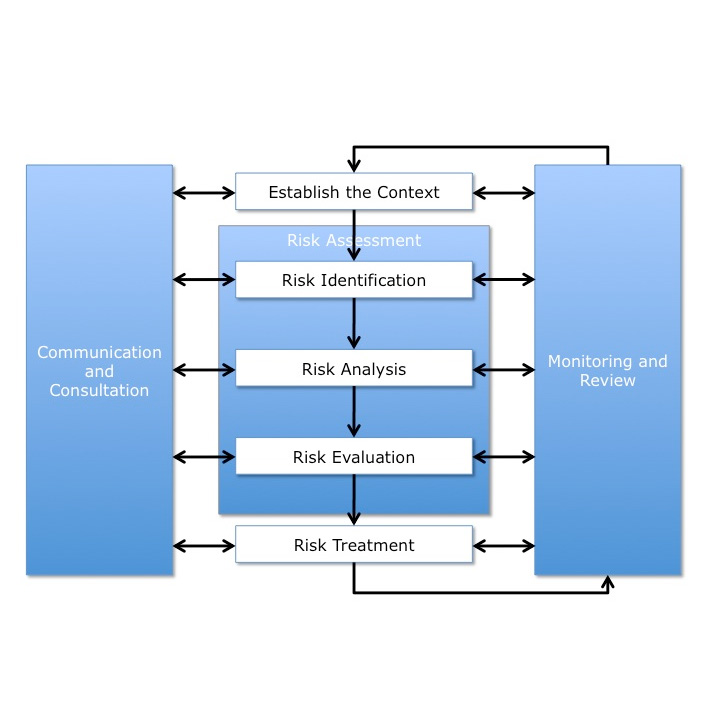The Increasing Relevance of Program Management Consultants (PMCs) in Capital Improvement Programs
Program Management Consultants (PMCs) have emerged as key players in capital improvement programs, gaining importance as the complexities of infrastructure development continue to grow. These professionals are critical in helping governments, municipalities, and private entities navigate challenges such as urbanization, regulatory demands, and tight budgets. PMCs ensure that infrastructure projects are delivered efficiently, on time, and within budget, while meeting the highest quality standards.
What is a Program Management Consultant (PMC)?
A PMC serves as a strategic partner, overseeing the entirety of a capital improvement program from planning to execution and beyond. Their role goes beyond traditional project management by focusing on the holistic integration of all program components. They ensure that projects meet their objectives, mitigate risks, manage resources effectively, and act as a bridge between stakeholders, contractors, and governing bodies.
Key Responsibilities of a PMC
- Integrated Planning and Budget Oversight
PMCs develop detailed schedules and financial plans to maintain transparency and sustainability. This includes monitoring expenditures, managing cash flow, and identifying potential financial risks to ensure projects stay within budget. - Contract Management
Handling contracts is a core responsibility. PMCs negotiate terms, manage vendor relationships, and ensure that all parties involved comply with the agreed-upon terms to safeguard the client’s interests. - Stakeholder Coordination
PMCs are skilled communicators who align the goals of clients, contractors, and community members. They facilitate collaboration and maintain trust through consistent communication and engagement. - Risk Mitigation
By identifying potential risks early, PMCs can proactively address challenges such as regulatory issues, environmental factors, and unexpected costs. This ensures that projects proceed without major disruptions. - Adoption of Advanced Tools
PMCs leverage technology, such as cloud-based platforms and predictive analytics, to streamline workflows and enhance decision-making. These tools provide real-time updates and allow for precise adjustments throughout the program lifecycle.
What Sets a Great PMC Apart?
- Holistic Expertise
Outstanding PMCs possess a deep understanding of infrastructure development, financial management, legal frameworks, and community impact. This multidisciplinary approach enables them to manage programs effectively. - Proactive Communication
Effective communication is at the heart of successful program management. Exceptional PMCs prioritize open dialogue, keeping stakeholders informed and addressing concerns promptly. - Flexibility and Innovation
The best PMCs adapt to evolving circumstances and embrace innovative technologies and strategies to optimize project outcomes. - Results-Driven Approach
A great PMC focuses on delivering tangible benefits such as cost savings, improved infrastructure quality, and enhanced community well-being.
Why PMCs Are More Important Than Ever
As infrastructure needs become increasingly complex, PMCs have become indispensable. They ensure efficient use of resources, foster collaboration, and implement best practices to meet the unique demands of modern projects. By taking a strategic, results-driven approach, PMCs help transform ambitious infrastructure plans into reality, delivering long-lasting value to communities.
For stakeholders, this means projects that are executed with precision, providing improved infrastructure, enhanced quality of life, and sustainable growth. PMCs are not just managers but enablers of progress, driving innovation and excellence in every project they undertake.
You said:
this is excellent, leave everything as it is, add a #6 in the Key Responsibilities of a PMC for schedule oversight
ChatGPT said:
ChatGPT
The Increasing Relevance of Program Management Consultants (PMCs) in Capital Improvement Programs
Program Management Consultants (PMCs) have emerged as key players in capital improvement programs, gaining importance as the complexities of infrastructure development continue to grow. These professionals are critical in helping governments, municipalities, and private entities navigate challenges such as urbanization, regulatory demands, and tight budgets. PMCs ensure that infrastructure projects are delivered efficiently, on time, and within budget, while meeting the highest quality standards.
What is a Program Management Consultant (PMC)?
A PMC serves as a strategic partner, overseeing the entirety of a capital improvement program from planning to execution and beyond. Their role goes beyond traditional project management by focusing on the holistic integration of all program components. They ensure that projects meet their objectives, mitigate risks, manage resources effectively, and act as a bridge between stakeholders, contractors, and governing bodies.
Key Responsibilities of a PMC
- Integrated Planning and Budget Oversight
PMCs develop detailed schedules and financial plans to maintain transparency and sustainability. This includes monitoring expenditures, managing cash flow, and identifying potential financial risks to ensure projects stay within budget. - Contract Management
Handling contracts is a core responsibility. PMCs negotiate terms, manage vendor relationships, and ensure that all parties involved comply with the agreed-upon terms to safeguard the client’s interests. - Stakeholder Coordination
PMCs are skilled communicators who align the goals of clients, contractors, and community members. They facilitate collaboration and maintain trust through consistent communication and engagement. - Risk Mitigation
By identifying potential risks early, PMCs can proactively address challenges such as regulatory issues, environmental factors, and unexpected costs. This ensures that projects proceed without major disruptions. - Adoption of Advanced Tools
PMCs leverage technology, such as cloud-based platforms and predictive analytics, to streamline workflows and enhance decision-making. These tools provide real-time updates and allow for precise adjustments throughout the program lifecycle. - Schedule Oversight
Ensuring projects adhere to timelines is a critical role of a PMC. By creating and maintaining integrated master schedules, PMCs monitor progress, address delays proactively, and ensure that key milestones are met. This oversight helps prevent costly schedule overruns and keeps projects on track.
What Sets a Great PMC Apart?
- Holistic Expertise
Outstanding PMCs possess a deep understanding of infrastructure development, financial management, legal frameworks, and community impact. This multidisciplinary approach enables them to manage programs effectively. - Proactive Communication
Effective communication is at the heart of successful program management. Exceptional PMCs prioritize open dialogue, keeping stakeholders informed and addressing concerns promptly. - Flexibility and Innovation
The best PMCs adapt to evolving circumstances and embrace innovative technologies and strategies to optimize project outcomes. - Results-Driven Approach
A great PMC focuses on delivering tangible benefits such as cost savings, improved infrastructure quality, and enhanced community well-being.
Why PMCs Are More Important Than Ever
As infrastructure needs become increasingly complex, PMCs have become indispensable. They ensure efficient use of resources, foster collaboration, and implement best practices to meet the unique demands of modern projects. By taking a strategic, results-driven approach, PMCs help transform ambitious infrastructure plans into reality, delivering long-lasting value to communities.
For stakeholders, this means projects that are executed with precision, providing improved infrastructure, enhanced quality of life, and sustainable growth. PMCs are not just managers but enablers of progress, driving innovation and excellence in every project they undertake.













